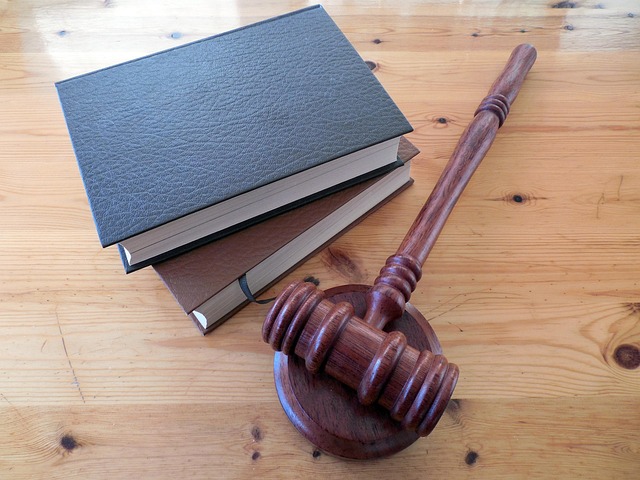Grandparent custody disputes arise when parents restrict grandparents' access to their grandchildren, leading to legal battles based on family integrity and the child's best interests. To regain or establish visitation rights, grandparents must consult a specialized attorney, gather evidence (including birth certificates, medical records, school reports), file a petition in court, attend hearings, and demonstrate a consistent relationship with the child. These disputes often require court proceedings, but alternative resolutions like mediation and arbitration can prioritize the child's well-being over litigation.
Grandparent rights are a vital aspect of family law, yet enforcing these rights can be complex. This article provides comprehensive legal insights into grandparent rights enforcement procedures, focusing on navigating grandparent custody disputes. We explore the legal framework and basis for enforcement, steps to initiate the process, evidence requirements, court proceedings, and alternative resolutions like mediation and arbitration. Understanding these mechanisms is crucial for grandparents seeking to preserve their unique bond with their grandchildren.
- Understanding Grandparent Rights: Legal Framework and Basis for Enforcement
- Initiating the Enforcement Process: Steps to Take After a Custody Dispute Arises
- Evidence and Documentation: What Grandparents Need to Prove Their Case
- Court Proceedings: Navigating the Legal System for Grandparent Rights
- Alternative Resolutions: Mediation, Arbitration, and their Role in Grandparent Custody Disputes
Understanding Grandparent Rights: Legal Framework and Basis for Enforcement

In many jurisdictions, grandparent rights are recognized and protected by law, providing a legal framework for grandparents to seek access and involvement in their grandchild’s life, especially when there are custody disputes involving parents. Grandparent custody disputes often arise when a parent denies or restricts grandparent-grandchild relationships, and it becomes necessary to enforce these rights through legal means. The basis for enforcement lies in the principle of family integrity and the best interests of the child.
Legal systems typically recognize that grandparents can contribute significantly to a child’s well-being, offering love, support, and unique perspectives. Therefore, courts may intervene when a parent’s actions unfairly deprive grandparents of their rightful access. Enforcement procedures involve filing legal motions, participating in hearings, and presenting evidence to demonstrate the positive impact of grandparent involvement. Understanding these rights and the legal framework is crucial for both grandparents seeking access and parents navigating grandparent custody disputes.
Initiating the Enforcement Process: Steps to Take After a Custody Dispute Arises

When a grandparent faces a custody dispute, initiating the enforcement process requires careful navigation. The first step is to consult with an experienced family law attorney who specializes in grandparent rights. They can provide legal guidance tailored to the specific situation and help craft a strategy to regain or establish visitation rights. This may involve gathering evidence, such as medical records, school reports, or affidavits from witnesses, to support the case.
After consulting with an attorney, the next crucial step is to file a petition in the appropriate court. This formal document outlines the grandparent’s request for custody or enhanced visitation rights and includes any supporting evidence. The court will then schedule a hearing where both parties present their cases. During this process, it’s essential to remain proactive, keep detailed records of all communications and interactions, and adhere to court-ordered procedures to ensure the best possible outcome in the grandparent custody dispute.
Evidence and Documentation: What Grandparents Need to Prove Their Case

In grandparent custody disputes, evidence and documentation play a crucial role in proving one’s case. Grandparents seeking to enforce their rights must gather comprehensive proof to demonstrate their suitability and ability to provide a stable home for the child. This typically includes historical records such as birth certificates, marriage licenses, and previous court documents related to family matters. It is also essential to provide current evidence of parental involvement, like letters, emails, or photographs showcasing regular interactions with the minor.
Additionally, grandparents should compile affidavits from reliable witnesses, such as family members or friends who can attest to the grandparent’s character and ability to care for the child. Medical records and school reports that highlight the child’s well-being and needs in a supportive environment can further strengthen their position. Demonstrating a consistent relationship with the child and a willingness to adhere to any court-ordered custody arrangements is vital in these disputes.
Court Proceedings: Navigating the Legal System for Grandparent Rights

In many grandparent rights cases, court proceedings become an inevitable part of the enforcement process. Navigating the legal system for grandparent custody disputes can be a complex and emotionally challenging journey. It requires a deep understanding of family law and meticulous adherence to legal procedures. Grandparents seeking access or custody must assemble relevant documents, such as birth certificates, marriage licenses, and court orders, to establish their relationship with the child and their legal standing.
During court proceedings, grandparent rights advocates can expect a series of hearings, where they will need to present their case clearly and convincingly. This may involve providing evidence of substantial and positive contact with the child, demonstrating the ability to provide a stable and nurturing environment, and refuting any allegations against their parental fitness. The legal system aims to protect the best interests of the child, ensuring that decisions are made in their favor while also considering the unique bond and rights of grandparents.
Alternative Resolutions: Mediation, Arbitration, and their Role in Grandparent Custody Disputes

In many cases, grandparent rights enforcement procedures can be complex and emotionally charged, making alternative resolutions an attractive option for resolving grandparent custody disputes. Mediation involves a neutral third-party who facilitates communication between all parties involved, aiming to reach a mutually agreeable solution. This approach encourages collaboration and understanding, potentially avoiding the lengthy and contentious nature of litigation.
Arbitration is another effective method, where a chosen arbitrator listens to both sides’ arguments and makes a binding decision. It offers more flexibility than court proceedings and can be tailored to the specific needs of grandparent custody disputes. By employing these alternative resolutions, families can often reach agreements that better serve the interests of all parties, particularly the well-being of the child at the center of the dispute.






